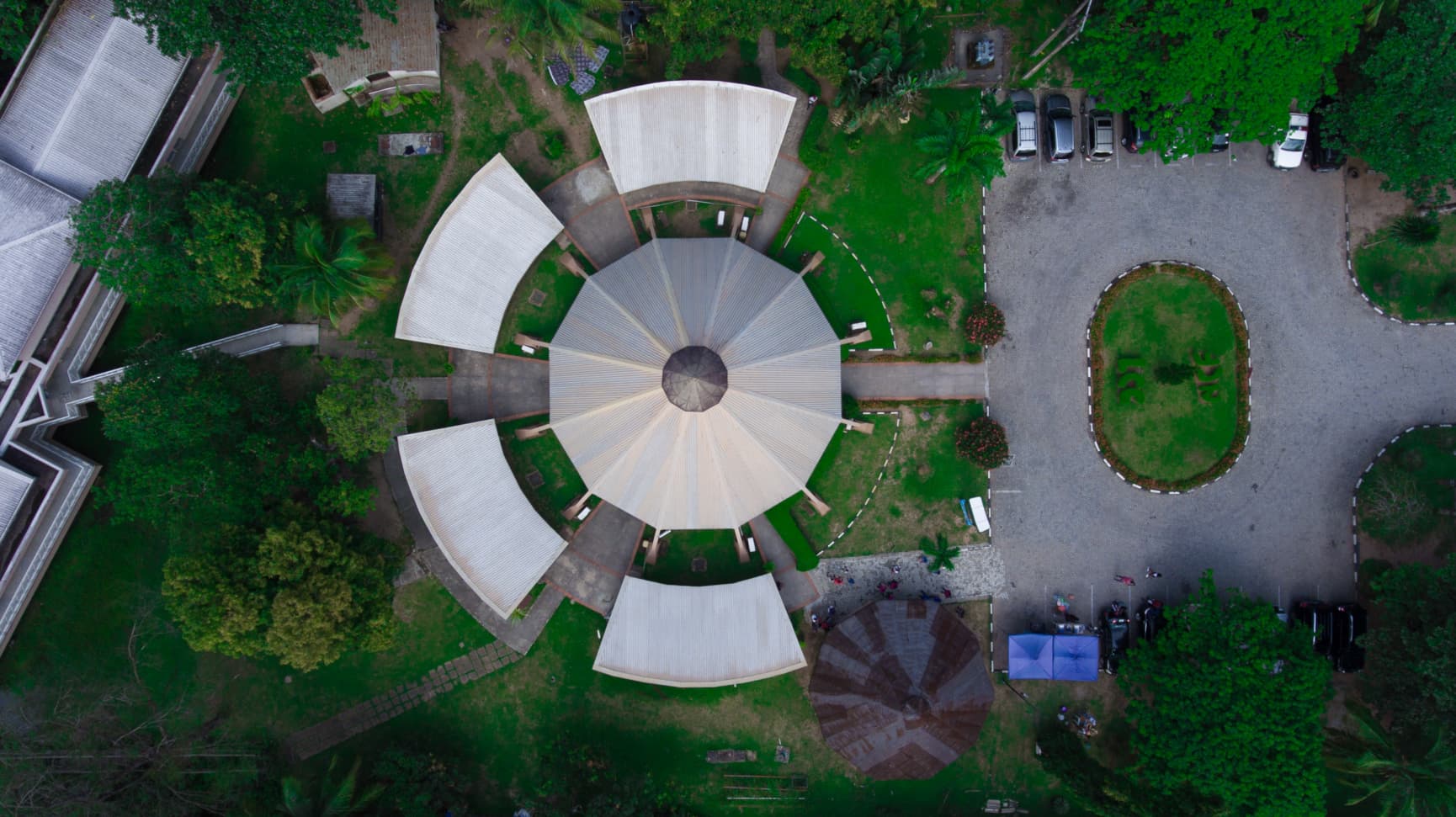Lagos Island is where Nigeria’s largest city pulses with history, culture and energy. A stroll down its narrow streets reveals layers of Lagos' past and present: colonial-era relics nestle amid Yoruba heritage centres, vibrant markets spill onto the sidewalks, and leafy parks offer surprises around every corner.
This bustling peninsula is a crossroads of history, commerce and adventure. In what follows, we’ll take you on an immersive tour through its treasures – from the lush gardens of Freedom Park to the spice-laden grills of street vendors – with vivid sights and sounds at every turn.
Historical Landmarks and Cultural Centres
Freedom Park – From Prison to Paradise
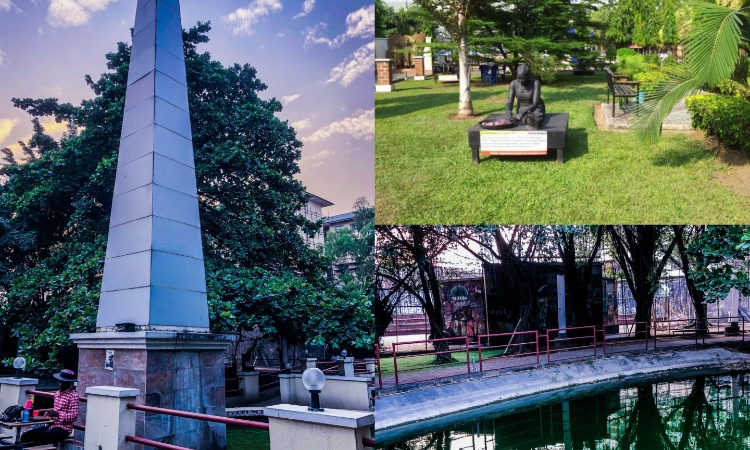
Just off Broad Street, Freedom Park is a green oasis that pulses with Lagos history. Once ‘Her Majesty’s Broad Street Prison’, it has been reborn as a public park and cultural hub. Palm groves and bubbling koi ponds replace prison cells, and an obelisk now marks the old gallows site.
During the day, locals picnic on the lawn or practice rollerblading on the amphitheatre stage; at night, the park’s open-air cinema and music festivals light up the old brick walls. Lanterns cast dancing shadows on an improvised theatre where Afrobeat concerts or folk dances bring the past to life. This transformation – “a symbol of Nigeria’s journey towards democracy and freedom” – makes Freedom Park feel both peaceful and electric, a living museum of Lagos’s triumphs.
John Randle Centre – Yoruba Heritage Alive
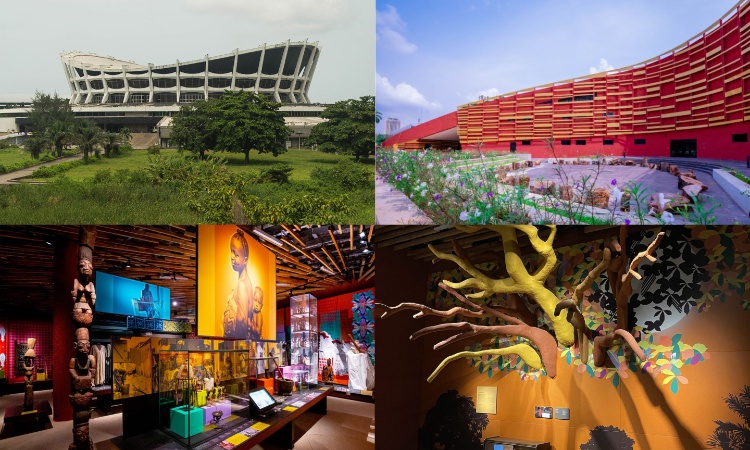
Near the National Museum stands the ‘John Randle Centre for Yoruba Culture and History’, a stunning new museum officially opened in 2023. Its design is “unapologetically Yoruba”: earth-toned concrete walls are sculpted and painted with gigantic Yoruba symbols and gold latticework. Stepping inside, you enter a riot of colour and sound.
A gigantic screen shaped like a calabash animates Yoruba creation myths, while surround-sound speakers pulse with traditional drumming and praise songs. You’ll find carved wood panels and folk art paintings of orishas (deities), such as Sàngó (the thunder god) and Òṣun (the goddess of rivers). Upstairs, the museum features three restaurants serving modern Yorùbá cuisine and a gift shop offering crafts. Designed as a “theatre of living memory,” this cultural centre invites visitors to dance with history rather than observe it.
Glover Memorial Hall – Theatre of History
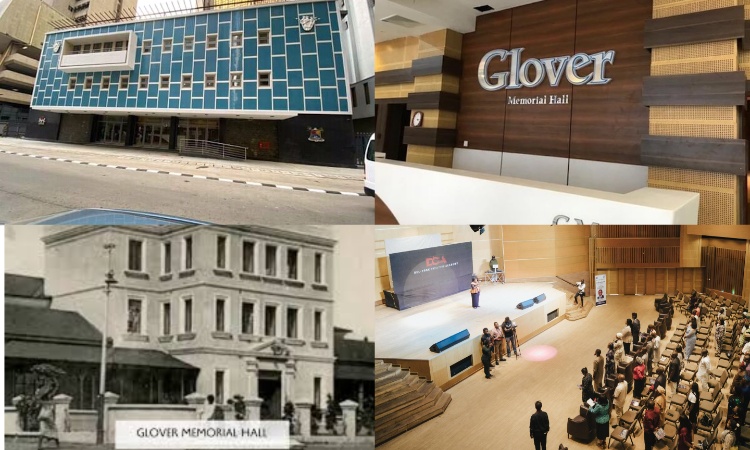
On Custom Street stands the elegant ‘Glover Memorial Hall’, a colonial-era performance hall completed in 1887. Named for Sir John Glover (a former governor of Lagos), it was built as a public venue for social gatherings, theatre performances and political meetings.
Through the 20th century, this hall was the beating heart of Lagos’s arts: pioneer dramatists like Hubert Ogunde staged plays here, and anti-colonial leaders held rallies in its hall. Its grand red-brick façade and restored interiors are reminders of that era. Today, the hall continues to host concerts and plays, upholding its legacy as a space where Lagosians gather to celebrate culture and history.
Markets and Commercial Hubs
Idumota Market – The Endless Bazaar
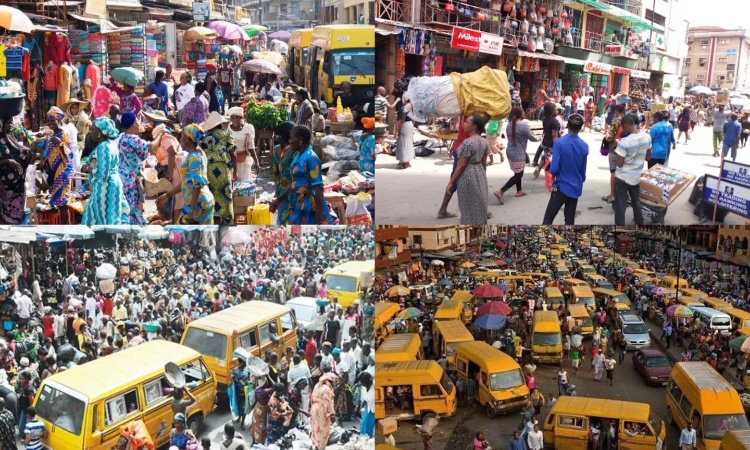
The island’s waterfront commerce begins at ‘Idumota Market’, a frenzied bazaar that wakes before sunrise. Often called one of West Africa’s largest markets, its narrow lanes are packed with thousands of stalls and shops spread over multi-story buildings.
Yellow ‘danfo’ minibuses rumble through, unloading traders and shoppers at every corner. You’ll encounter vendors selling everything from bolts of lace fabric to endless stacks of DVDs and electronics.
The sidewalk is a rainbow of goods: bright Ankara cloth piled high, crates of fresh peppers and ginger, and small stalls barbecuing skewers of goat meat.
Shouts and haggling in Yoruba and Pidgin fill the air; nearby, a street preacher might be giving a sermon. The sounds, smells, and colours are overwhelming – incense burning in one stall, spice vapours from a soup stand in another – but if you can navigate the crowds, you’ll find local life in full display.
Balogun Market and Fashion Streets
Just a few blocks away is the vast ‘Balogun Market’, a labyrinth of alleys and courtyards spilling off Broad Street. Balogun has no single address – it simply sprawls across any empty space it can find. Here, Nigerians come to buy fabrics, shoes and more.
During the morning rush, the scene is a riot of neon prints and haggling voices. Tailors measure yards of Ankara and lace, while apprentices ferry mannequins down the sidewalk. One Lagos travel writer notes that Balogun “is recognised as the best place to buy fabrics, shoes, and all sorts of wares” in the city.
Keep an eye on your belongings in these tight alleys – but also enjoy the spectacle: you might see a stall selling ornate wedding wrappers next to a cart grilling suya kebabs for hungry customers. Everywhere, the pace is frenetic: shopkeepers call out daily deals, and delivery boys zip past on motorbikes stacked high with goods.
Religious and Architectural Marvels
Shitta-Bey Mosque – Afro-Brazilian Splendour
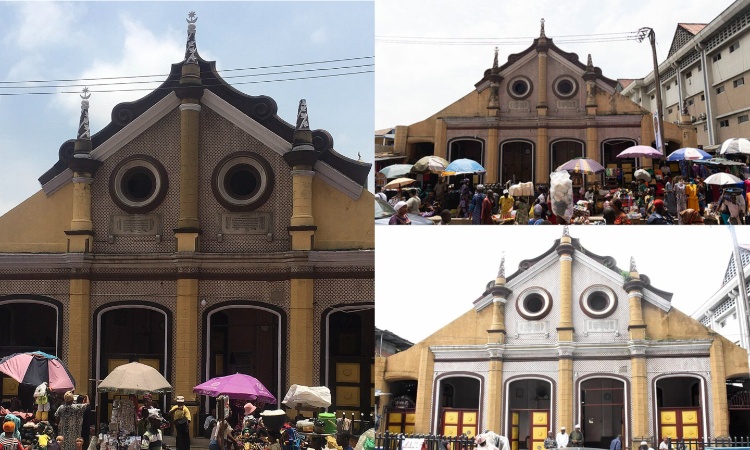
On Martins Street stands the ‘Shitta-Bey Mosque’, one of Lagos’s most distinguished religious buildings. Financed by wealthy philanthropist Mohammed Shitta Bey, it was completed in 1894 in an Afro-Brazilian style. From the street, you’ll see a grand façade of pastel yellow with ornate arched doorways and round tower turrets. A tall minaret and reddish dome rise above the roofline.
Inside, hand-carved wood screens and tiles create intricate patterns of Islamicate design. This mosque was so important that in 2013 it was declared a National Monument. Even today, five times a day, you can hear the muezzin’s call from its loudspeakers, and on Fridays, the courtyard fills with worshippers.
Around the mosque, the street market is lively, with fishmongers, textile sellers, and food carts catering to those who come for prayer. The Shitta-Bey Mosque thus remains a living link between Lagos’s past and present spiritual life.
Cathedral Church of Christ – Colonial Grandeur
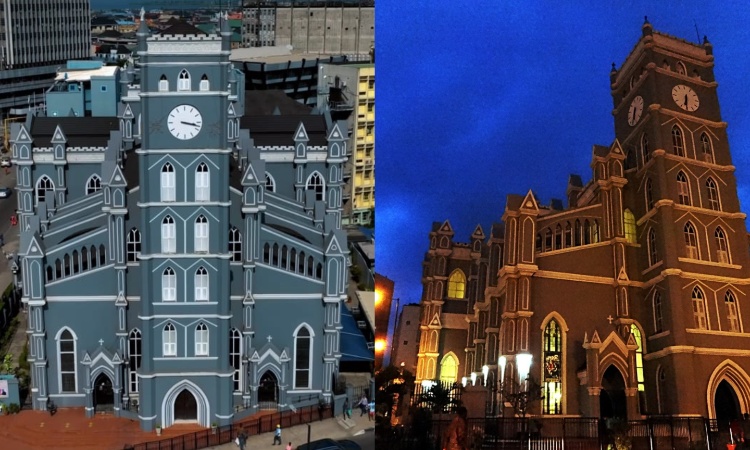
A short walk to the waterfront brings you to the ‘Cathedral Church of Christ (Marina)’, the oldest Anglican cathedral in Nigeria. This grand building was begun in 1867 and completed in its current form in 1946. Its spire and pale stone façade are modelled on Victorian English cathedrals, lending a stately air among the surrounding palms.
Step inside at midday and sunlight filters through stained glass onto a polished wooden altar. The cathedral is also the resting place of Bishop Samuel Ajayi Crowther, Africa’s first Anglican bishop; his remains were moved here in 1976, and a marble cenotaph honours his legacy. In the hush of the nave, one can almost feel the continuity: colonial-era architecture holding centuries of Nigerian faith.
Statues, Squares and Shrines
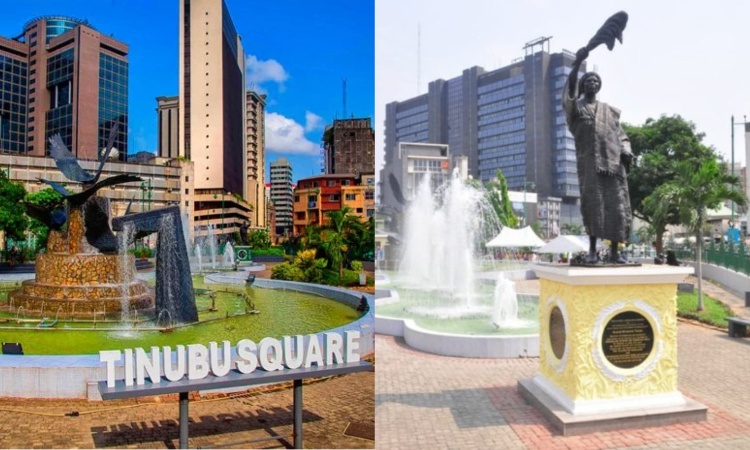
Beyond formal buildings, Lagos Island’s public spaces are dotted with history and spirituality. ‘Tinubu Square’ near the Marina is a small park dedicated to Madam Efunroye Tinubu, a 19th-century Lagos queen mother and trader; her statue stands amid tropical flora.
Along Marina and Custom Street, you’ll see stately colonial-era offices and court buildings, reflecting the city’s administrative past. On Carter Bridge, you might spot an eye-catching cenotaph from the army, and further inland, a small monument honours the masqueraders of the Eyo Festival (an indigenous procession still held today).
On any evening, Yoruba and Hausa Muslim neighbourhoods come alive with music or prayer: it’s common to encounter an oriki (praise chant) echoing from a family shrine or a group of worshippers greeting maghrib prayer in the street. In short, faith and folklore mingle freely on Lagos Island’s sidewalks.
Leisure and Recreation
Lekki Conservation Centre – Treetop Adventure
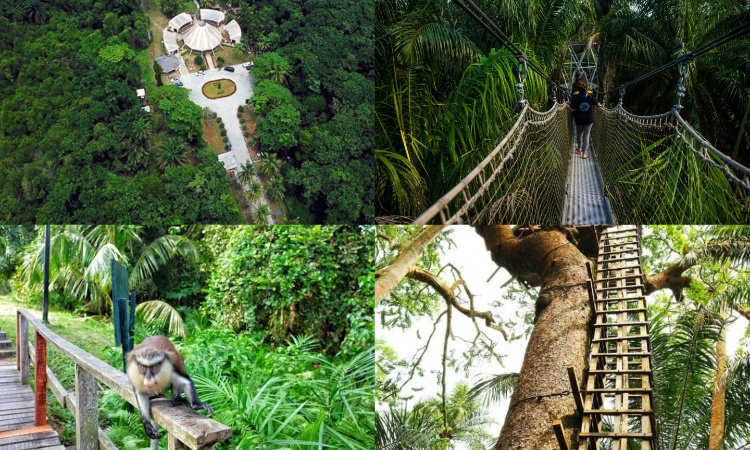
Located at Kilometre 19 on the Lekki-Epe Expressway, adjacent to Chevron Nigeria Limited, the ‘Lekki Conservation Centre (LCC)’ is a 78-hectare nature reserve established in 1990 by the Nigerian Conservation Foundation.
This expansive sanctuary offers a serene escape from Lagos's bustling city life, preserving vital mangrove swamps and savannah habitats that are home to a diverse array of flora and fauna.
Visitors can explore a 2-kilometre elevated wooden boardwalk that meanders through lush vegetation, providing opportunities to observe wildlife such as Mona and Patas monkeys swinging overhead, and colourful birds like sunbirds and hornbills darting about, as well as crocodiles in their natural habitats.
The reserve's highlight is its ‘401-meter-long canopy walkway’, the longest in Africa, suspended 22.5 meters above the ground. This walkway offers panoramic views of the surrounding forest and, on clear days, glimpses of the Lagos skyline.
Additional attractions include a treehouse built around a towering Dawadawa tree, picnic areas with shaded gazebos, life-sized outdoor games like chess and Ludo, and a variety of recreational facilities. The centre also features a nature station and bird hide for enthusiasts interested in observing the region's avian life.
Accessible via car or rideshare services, the LCC is open daily from 8:30 a.m. to 5:00 p.m. Admission fees are approximately ₦1,000, with an additional charge for the canopy walkway experience. Guided tours are available for those seeking an informative exploration of the reserve's ecological significance.
Whether you're a nature enthusiast or simply seeking a peaceful retreat, the Lekki Conservation Centre provides a unique opportunity to connect with Nigeria's natural beauty and biodiversity.
Tarkwa Bay Beach – Island Escape
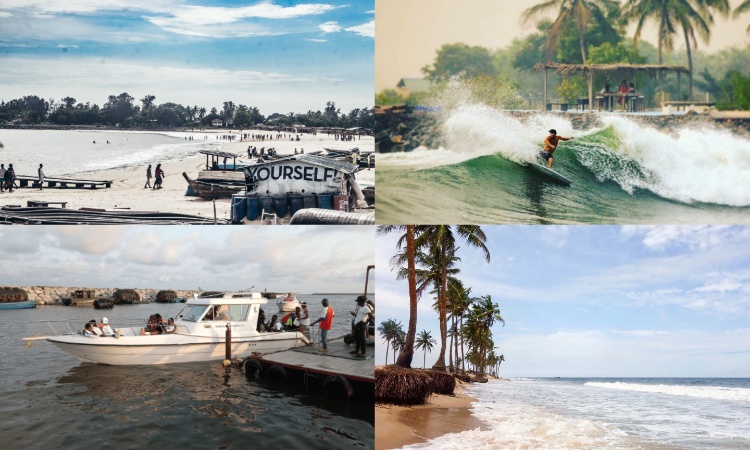
For seaside leisure, head by boat to ‘Tarkwa Bay’. This sheltered island beach feels a world away from the city’s chaos. There are no roads here – only sandy paths shaded by coconut and almond trees. Gently rolling waves make it safe for swimming and beginner surfing. Families come to picnic on the beach and fly kites in the ocean breeze. As one travel guide puts it, Tarkwa Bay “offers a tranquil retreat on an island off the coast of Lagos”. Simple beach shacks sell grilled fish and coconut water to sunbathers. In late afternoon, the light over the Atlantic turns fiery orange as Lagos’s skyscrapers shrink on the horizon.
Between dips in the water or volleyball games, you might spot pelicans or watch fishermen paddling past. It’s Lagos’s relaxed face – warm, salty, and timeless – all within view of the city lights. For other outdoor activities, Terra Bookings can arrange visits to nearby Lekki beaches, such as Elegushi, or boat parties around Banana Island. Back on Lagos Island itself, weekends often see pop-up fairs at Tafawa Balewa Square or riverfront concerts at Freedom Park. There are also small playgrounds and art parks (search for *Terra kulture* in Onikan) if you need a moment of calm or family time in the shade.
Culinary and Nightlife Experiences
Street Food – Flavours of Lagos
Your taste buds will thank you for sampling Lagos Island’s street cuisine. Start early: at dawn, Nigerian breakfast vendors line the streets with akara (hot bean cakes) and gala (meat pie), often served with warm pap (a type of millet porridge). By midday, charcoal grills appear everywhere, accompanied by suya skewers – strips of beef or chicken crusted in spicy peanut seasoning. The air fills with smoky peanut aroma and the low snip-snips of knives chopping the meat.
Walk a bit and you’ll find piles of jollof rice – a fragrant red tomato rice dish – topped with stewed chicken or fried fish. Nigerians jokingly call their version of jollof rice the “Holy Grail” of West African cuisine, and you’ll understand why when you taste it: richly spiced, bright with bell peppers, and usually served with a side of plantain or salad.
On street corners at night, vendors roast bòli (plantains) and sell bowls of peppery goat meat soup. Don’t miss the soft rolls stuffed with egg and sausages, or a cone of piping hot cassava chips. Every bite is bold and comforting – a true reflection of Lagosian warmth.
Restaurants and Nightlife – Lagos After Dark
Lagos Island also has its share of sit-down dining and bars. In recent years, new lounges and restaurants have opened that showcase Nigerian ingredients with global flair – think coconut-rice risotto with egusi pepitas or suya-spiced barbecue wings. A short drive to Victoria Island, Ikoyi or Lekki gives you even more: trendy rooftop bars, waterfront seafood restaurants and Afro-fusion eateries (for example, a spaghetti jollof or plantain-canapé appetiser!). To secure a table at the hottest spots or insider venues, such as Eko Hotel & Suite, we recommend booking through Terra Bookings in advance.
As night falls, Lagos’s famous nightlife ignites. (Lagosians joke that time bends after sundown: party hours become six and morning begins at 4 AM.) According to travel guides, the city “boasts an array of nightclubs, bars and lounges” with famous party districts on Victoria Island and Ikoyi.
On Lagos Island itself, the scene is more low-key but no less lively: beer gardens under fairy lights, pop-up street dance sessions at Jazzhole Cafe, or even a boat club on the lagoon. Live music – from traditional highlife bands to Afrobeat DJs – often spills onto venues like Freedom Park on weekends.
For safety and convenience, Terra Bookings can arrange secure transport and VIP access. Whether you join a late-night street food crawl or dance at a glamorous club, Lagos promises an unforgettable after-dark adventure.
Plan Your Lagos Adventure with Terra Bookings
Lagos Island can be as overwhelming as it is wonderful, so it pays to have a local expert guide your visit. ‘Terra Bookings’ offers curated tours and planning services to make the journey smooth. They can book private guided walks through historic Onikan, secure your entry tickets to the John Randle Centre or Freedom Park events, reserve a table at a top restaurant, and even organise a sunset boat cruise around the island.
With Terra Bookings, you get insider access – a Yoruba storyteller in Freedom Park one evening, a market guide translating Hausa shoppers the next – without the usual logistical hassles. You’ll experience Lagos beyond the tourist trail: the family-run suya stand behind Balogun Market, the hidden art gallery off Broad Street, the rooftop Jazz night in Ikoyi.
In short, Lagos Island is a place of surprises and energy, where every alley and avenue has a story to tell. Let Terra Bookings shape your itinerary so you can focus on soaking it all in. Pack your curiosity and appetite – Lagos Island awaits with its colours, sounds and tastes. E ku ọjọ́ (good day) in Lagos, and enjoy the ride!

